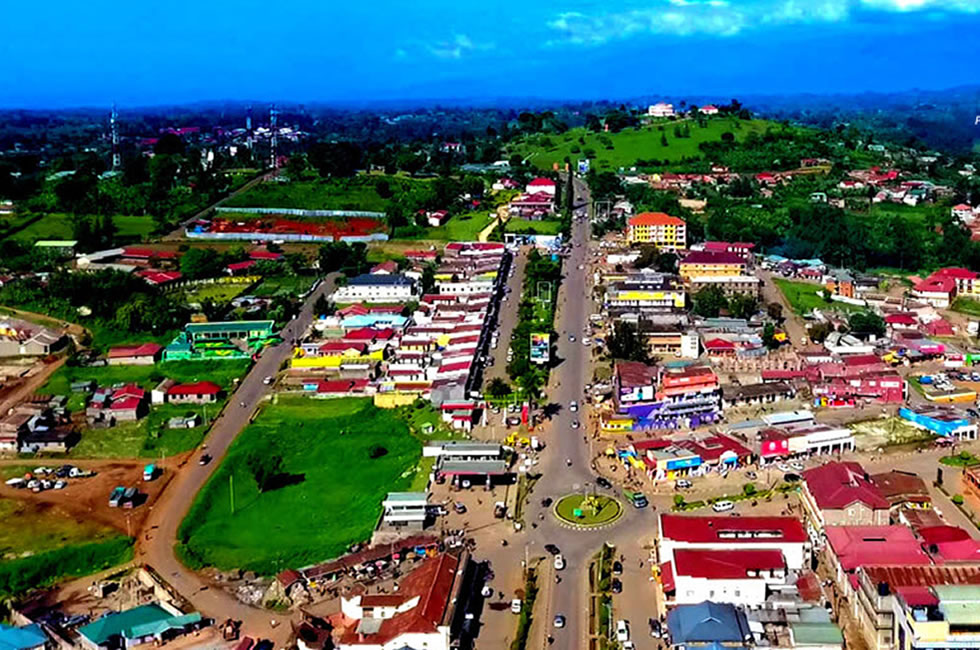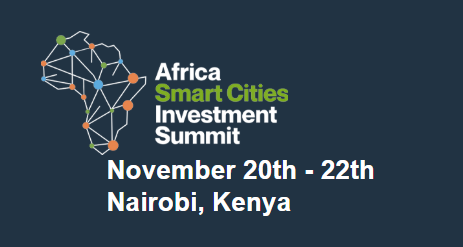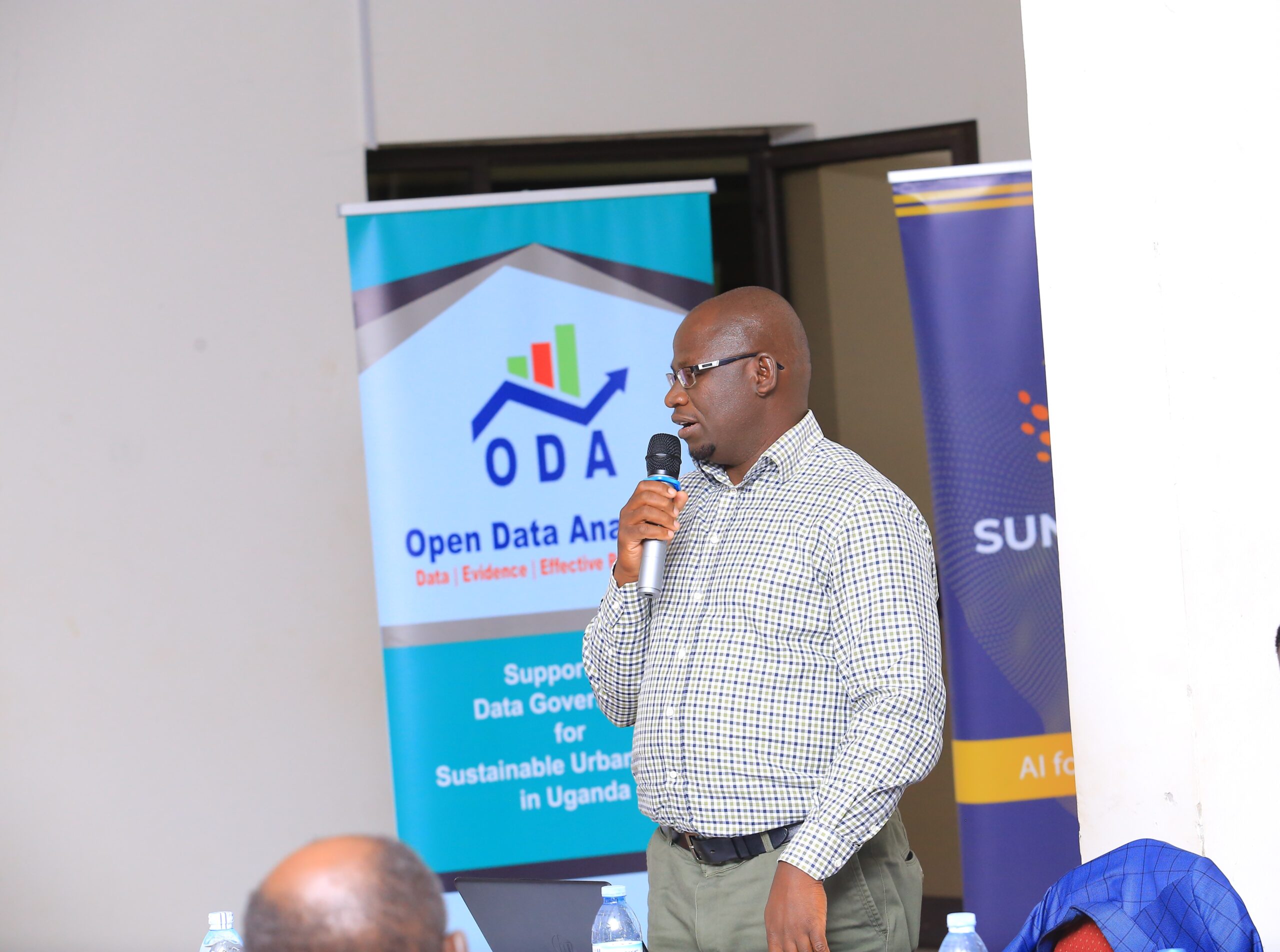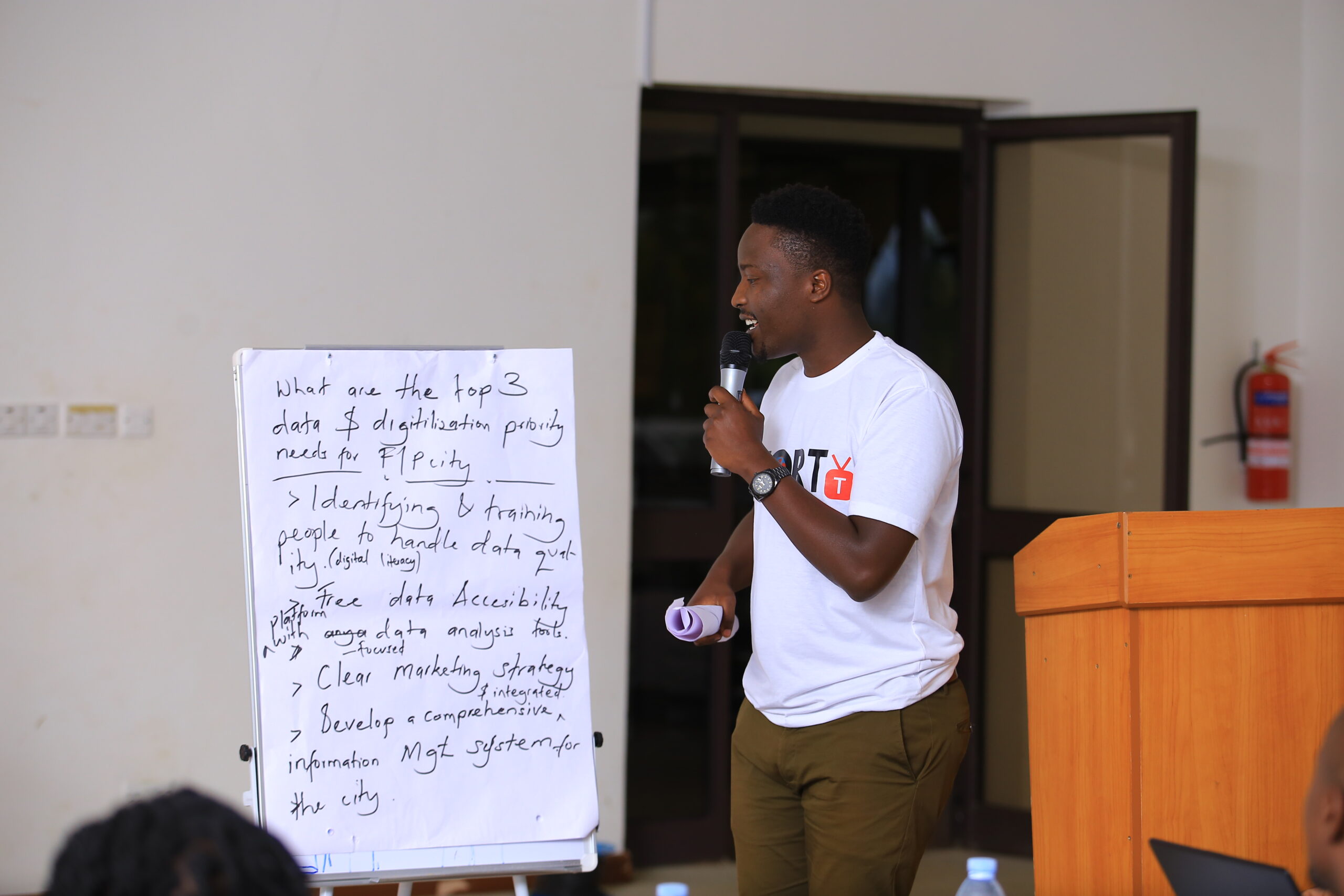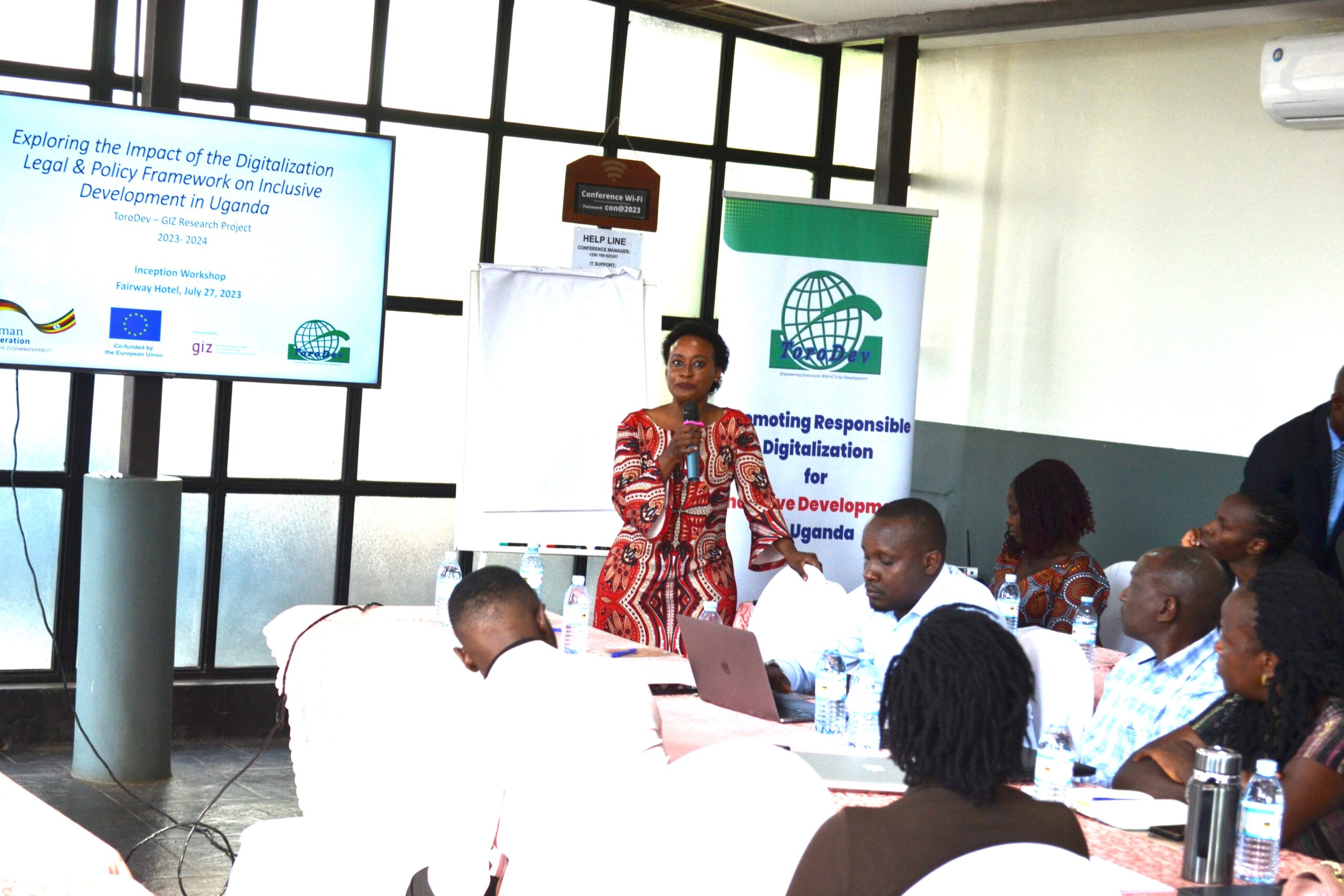How Fort Portal City is Growing Smarter with Data — Thanks to the DataCities Initiative in Uganda’s emerging cities
By the DataCities Communications’ Team
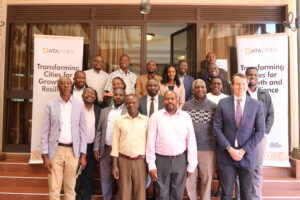
Above: Fort Portal Technical & Political Leaders with DataCities Consortium team in April 2025 during the annual partnership review meeting at Nyaika Hotel
Tucked in the green highlands of Western Uganda, Fort Portal Tourism City is known for its crater lakes, clean air, and easy-going charm. Behind the quiet beauty, a powerful shift is underway — one that’s turning data into a tool for smarter city management, planning and policy policymaking for inclusive and liveable urbanization.
At the heart of this shift is the “DataCities Initiative in Uganda’s Emerging Cities”, a collaborative initiative by ToroDev, Sunbird AI, UN Global Pulse with support from the Hewlett Foundation, USA.
But this isn’t just about using digital technology. It’s about helping emerging cities in Uganda and any other jurisdiction around the globe like Fort Portal, to tap into the value of accurate, relevant local data, data analytics & AI capabilities to solve old urbanization challenges in new and lasting ways.
And it’s working – as some stakeholders are saying;
“We didn’t even realize what we were sitting on.” Says Mr. Peter Kusemererwa, the Fort Portal City focal point person for the DataCities Initiative and Assistant City Clerk in Charge of Northern Division.
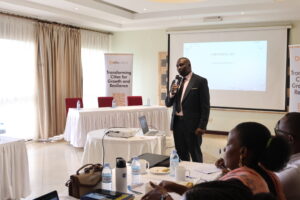
Above: Mr. Peter Kusemererwa, the Fort Portal City Focal Point Person for the DataCities Initiative, making a presentation during the program review in April 2025.
A few years ago, Fort Portal spent a considerable sum of money on a citywide data collection exercise aimed at improving property revenue mobilization. The goal was to inform better policies and streamline taxation in the newly established city. Instead, the result was a raw dataset with little analysis and no clear direction for identifying opportunities, diagnosing challenges, or planning improvements.
“We hadn’t even fully analyzed the data we paid for,” recalls Mr. Peter Kusemererwa.
“It took the DataCities team to help us realize that, and to reclaim the value and potential of that data for ourselves.” He adds.
That moment marked a turning point. Since then, the city has been on a journey not just to collect data, but to own it, analyse it well, use it and build systems around it for better revenue generation and better service delivery.
One of the first changes the DataCities Initiative supported was a simple, but a game-changing one: ensuring the city owns its data resources. Now, all service providers and consultants shall have “data handover clauses” in their contracts with the city.
No more lost datasets and reports. No more missing links….;
This shift sparked a deeper transformation. Fort Portal has now established, orienting and building capacity of the “Data Quality Assurance Team”, comprising of five (5) experts drafting “Standard Operating Procedures (SOPs)” for data management, and setting “Key Performance Indicators (KPIs)” for effective local city revenue mobilization, to track progress across the department.
“We now know what success should look like and how to measure it”, says Mr. Peter Kusemererwa…
What sets Fort Portal apart isn’t just its tools, it’s the approach. The city is embracing “data stewardship” not as a trend, but as a responsibility. All this points to effective “data governance and management” in the urban context.
“We’ve seen what happens when government agencies don’t own their data,” Mr. Tom Rabwoni, the Assistant City Clerk – In-Charge Administration, shares. “We’re not letting that happen here again,” He adds.
1. Smarter Tendering Processes, Stronger Local City Revenue Mobilization
With better, reliable data resources, Fort Portal is making more informed decisions, especially around local financing and procurements. The city now is advertising pre-qualified tenders with data/evidence-informed clear benchmarks, uses a “contextualized” digital property tax register (IRAS) instead of outdated manual systems, and applies geospatial analysis to correct property coordinates and expand the tax base, clearing considering which properties are in the dataset or not and need updating.
The impact? In just one year of the above data generation and data analytic trials in partnership with the DataCities initiative, revenue jumped from UGX 1.7 billion to UGX 2.14 billion — an increase of over UGX 300 million. Not by raising taxes, but by collecting them more effectively and efficiently.
2. Cleaning Up City Waste — With Data
Waste management used to be reactive, with no clear indicators, no defined roles, and no real visibility.
Today, Fort Portal has and/or doing;
- Developed data-intensive KPIs for waste management service providers.
- Created clear terms of reference for waste management operations of data-intensive in markets, commercial streets, house-holds and Smart City EcoHome Tourism service provers.
- Begun collecting household-level data to improve service providers’ route planning and efficiency in waste collection, evaluation and forecasting.
It’s not yet perfect, but it’s a world away from where things stood just a few years ago in the new city. With each data point well utilized, the city is steadily getting better at delivering cleaner, well-planned and re-positioning as a tourism hub, and more responsive to stakeholders’ needs in providing public services through evidence-informed routine decisions for efficient waste management.
3. Unlocking Tourism with Data
Fort Portal is taking bold steps to live up to its title as a Tourism City — by turning tourism data into a powerful tool for visibility, planning, and growth. While Fort Portal has long been known for its tourism strengths, there are significant data gaps that hinder the city from harnessing its full potential.
That’s currently changing too;
To address some of these gaps, the city is taking bold steps to leverage data for better visibility, planning, and has co-created “Tourism Maps”, including a detailed map of Fort Portal’s key attractions and a “tube-style” map that positions the city as a gateway to the Rwenzori sub-region in Uganda. These tools not only highlight what the city has to offer but are also designed to encourage longer, more meaningful tourists’ stays by revealing the full scope of experiences available in and around Fort Portal.
A “Tourist Activity Tracker” tool is also currently being piloted to collect visitor data such as demographics, travel behaviour, and on-site experiences. This information will help improve planning at individual sites and, when aggregated, will inform broader strategies for advocacy, marketing, and investment.
The data-intensive and AI-enabled “Smart City EcoHomes” initiative is also underway – enabling residents and other city stakeholders benefit economically, socially and ecologically from the urbanization of Fort Portal into a city. Residents’ extra spaces in their homes and other properties are steadily being opened for tourists who desire to experience a contextualized home-based and cultural tourism. In turn service providers are benefiting from generating revenue from such tourists – making the “city buzz” come closer to the people.
4. What’s Next? Building for the Long Term
Fort Portal isn’t done, and they know it. In fact, the city is eager to re-do parts of its earlier data collection now that it has a stronger, more capable data stewardship team in place.
Upcoming priorities include:
- Finalizing data-intensive SOPs across all city departments.
- Enriching datasets with bio-data, contact details and PRNs for local revenue mobilization and other service provision aspects. This is being done with strict observance and adherence to local, national and regional data privacy guidelines, laws and policies/standards.
- Extending the digital IRAS property register to all city wards.
- Using data capabilities like geospatial and satellite imagery to zone resources and improve urban planning.
- Mainstreaming citizens’ generated data approaches like safe social media data analytics to understand residents’ feedback and incorporate it in better city services delivery.
There’s a quiet confidence building here, not because everything is fixed, but because the city is now learning how to fix things using data and evidence.
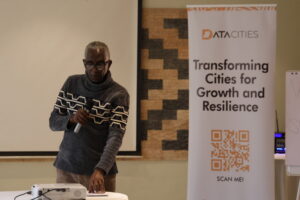
Above: The Mayor Fort Portal Tourism City –Asaba Edison Ruyonga, giving closing remarks during the DataCities Initiative review at Nyaika Hotel in April 2025
“When data is collected, it is not an end in itself. It is to be used as a tool to give better services to the people.” Says Mr. Asaba Edison Ruyonga, the Mayor Fort Portal city
Fort Portal is showing that data doesn’t just belong in dashboards nor donor reports. It belongs to the everyday life of a typical city, shaping the decisions, policies, and priorities that build a better urban future.

